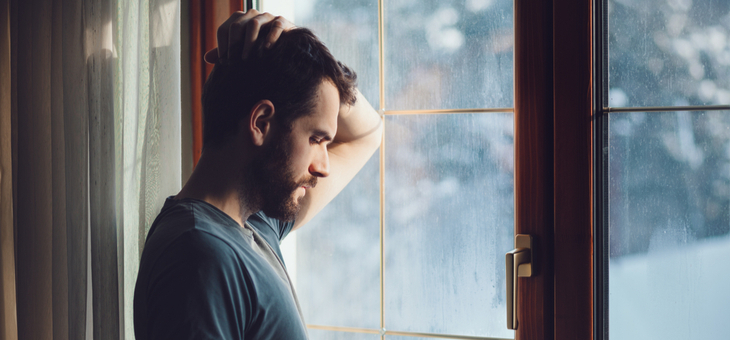We are living in challenging times as we ride out the COVID-19 pandemic, writes clinical psychologist Dr Eric Goodman, and it’s not just the virus itself that is challenging us.
•••
Along with the concerns about our loved ones (and ourselves) contracting COVID-19, many of us are isolated while sheltering in place. Additionally, there are the practical challenges of getting groceries and medical care for chronic conditions while doing our best to avoid contamination. We are also suddenly finding ourselves in need of technologies that may be new to us, in order to stay in touch, and this can feel stressful and confusing.
It is normal to find our emotional wellbeing strained. The biggest mental health challenge for most of us right now is increased anxiety.
What is anxiety?
Anxiety is often described as a disease, disorder or villain with ill intent. However, that is not what it is. While anxiety can feel like a beast, it is actually your body’s built-in survival system. When the fear centre of your brain perceives (or misperceives) a threat, it floods your body with stress hormones designed to increase your strength, energy and focus. This is known as the ‘fight-or-flight’ response. Without this safety system, we would have a difficult time dealing with dangerous threats when they arise.
The problem is that our internal safety systems were designed in prehistoric times to overcome immediate physical threats – such as being stalked by a sabre-tooth tiger. We humans have been around in one form or another for around two million years – and our inner anxiety beasts served us well for most of it. Technological marvels, however, have profoundly changed human life in a very short time.
Our lives are safer and longer lived (on average) compared with any other time in human history. Our anxiety, however, has not changed. It is constantly on the lookout for threats, but more often than not these days it is jumping at shadows, where there is no immediate threat.
Anxiety in the time of COVID-19
Despite our anxiety being an overzealous bodyguard, it is helping us through COVID-19 by motivating us to socially distance, wash our hands and try to avoid contamination. Without anxiety, we’d take more dangerous risks.
Anxiety is not being helpful (though it means well) when it motivates us to stay glued to the news on TV, trying to get certainty on when COVID will be gone. Our anxiety is not a patient beast, it wants us to solve this threat now – not in undetermined weeks or months.
It is also not helpful for those of us who are living alone when it cries over and over to be around people. Anxiety gets louder when we are alone because back in prehistoric times, being alone was a very dangerous thing. The animal that gets separated from the herd often became food for the predators.
Even though it is no longer such a threat to be alone, our anxiety hasn’t gotten the message.
Anxiety management tips
Limit news intake. When we leave the news on as background noise, we are constantly revving up our anxiety, which leads it to continually shouting DANGER! Instead, check in with a trusted news source briefly once or twice a day to get useful information.
Remember that the statistics are on our side. We are hearing about the reality of thousands of people dying. This is a very challenging time and grief and fear are normal. However, the odds of dying from COVID-19 remain very small, even for those more at risk. This is scary, but we are most likely going to be okay.
Soothe your anxiety daily. Don’t wait until you’re anxious to begin soothing your anxiety. Spreading relaxing activities such as meditation, yoga or listening to calming music throughout the day can help keep our howling anxiety beast calmer.
Practise healthy nutrition. When we eat poorly or skip meals, spikes and drops in blood sugar can increase anxiety levels. If available, eat a healthy diet that minimises stimulants such as caffeine and nicotine.
Reach out to other people safely. ‘Social distancing’ can be better thought of as ‘physical distancing’ while safely socialising. Reach out to friends, family, neighbours or acquaintances safely, using phone or internet. A brief friendly chat can do wonders for our mental health in difficult times.
Ask for more help when needed
During times of crisis, people often want to be of help. Give them that opportunity by letting those in your life know what your needs are, whether that be help figuring out how to video chat with a friend or perhaps picking up a medicine for you. Also, there are more mental healthcare providers now than ever available to meet with you through the internet.
Dr Eric Goodman, Ph.D. is the author of Your Anxiety Beast and You (Exisle Publishing June 2020). He is a clinical psychologist, author and speaker who specialises in helping people face their social fears and anxiety disorders. He lives in with his wife, three kids, dog, and their anxiety beasts.
Have you been able to keep your anxiety under control? Have you needed to reach out for help?
If you enjoy our content, don’t keep it to yourself. Share our free eNews with your friends and encourage them to sign up.
Related articles:
Farewelling the funeral
Understanding biotin
Fallen in love with walking

